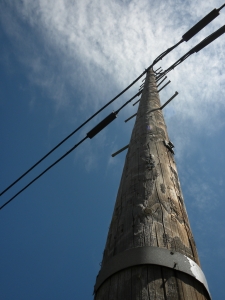 I discuss settlement with our workers’ compensation clients every day of the week. Even people we don’t represent call on a regular basis to pick my brain about settlement. Each case has its own unique set of variables. No blueprint is available to provide answers.
I discuss settlement with our workers’ compensation clients every day of the week. Even people we don’t represent call on a regular basis to pick my brain about settlement. Each case has its own unique set of variables. No blueprint is available to provide answers.
Some basic principles do apply in every Florida workers’ compensation case. It is important for them to be understood.
- Neither the employer/carrier (e/c) nor the injured worker/claimant can be forced to settle a Florida workers’ compensation case. If there is going to be a settlement, it must come by agreement of the parties.
- No judge or jury can order the e/c to pay a lump sum amount for future benefits. While workers’ compensation judges can order the e/c to provide some future benefits, the payout only comes as the benefit accrues. For example, the judge can make an e/c responsible for attendant care, but the e/c only pays as the service is provided. Lump sum verdicts are the remedy in civil cases, not in workers’ compensation cases.
- There are no juries in workers’ compensation cases, only workers’ compensation judges appointed by the Governor of the state. Juries render verdicts in civil cases.
- Injured workers never receive compensation for pain and suffering in Florida workers’ compensation cases. Compensation for pain and suffering is exclusive to civil liability cases. While an employer can sometimes be sued for civil damages, it is a rare exception. It is not uncommon, however, for a third party to be sued in civil court for causing the employee’s job-related accident. For example, our office is currently prosecuting a civil action for a woman who slipped in wet paint as she was leaving work. The case is against her employer’s landlord. We settled the workers’ compensation case against her employer (and its insurance company) six months ago.
Settlement value is based on exposure. How much a case is worth at any given moment in time depends on how much the case can reasonably be expected to cost e/c in the future if it does not settle. Since the e/c is not in the business of giving gifts to injured workers, it will never settle a case for more than what it projects as its long term exposure. In fact, the e/c won’t even settle for an amount equal to its projected exposure. If a deal is to be made, it will have to be for a fraction of e/c’s worst case scenario analysis. The main reason for this is because the e/c earns money on its money. Rather than pay the full amount today, the e/c is better off investing the money and paying it off over time. Another reason why less than full exposure is paid today is because workers’ compensation claims die with the claimant. The e/c’s obligation to pay benefits ends when the claimant dies. Whatever money e/c has in reserve to meet is future obligations becomes its money with the passing of the claimant.
Continue reading
 Florida Injury Attorney Blawg
Florida Injury Attorney Blawg









